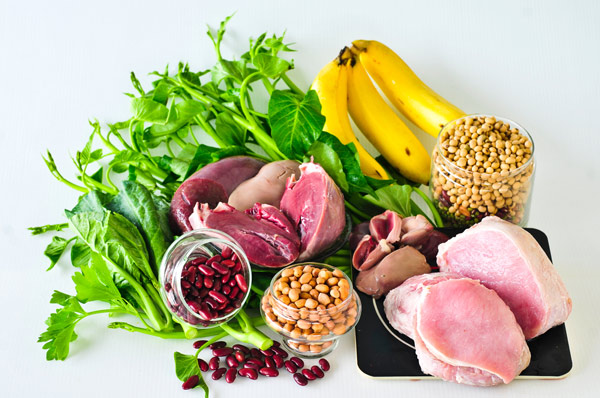What is vitamin B6? Usage and dosage of Vitamin B6 per day
Vitamin B6 (pyridoxine) is one of the vitamins in the B complex family (Vitamin B-complex), which plays an important role in a variety of physical and psychological functions. Vitamin B6 helps maintain metabolism, liver function, nerve function, increase energy and good due to our skin, hair, nails.
Without vitamin B6, we will feel tired, uncomfortable, anxious, depressed.
Vitamin B6 has no effect on health
- Maintaining healthy blood vessels, playing an important role in managing blood pressure and cholesterol levels helps prevent cardiovascular disease.
- Helps develop brain and brain function.
- Help to improve mood, prevent depression, pain, fatigue.
- Help treat anemia.
- Helps prevent eye disorders and loss of vision, slows the onset of certain eye conditions like age-related macular degeneration.
- Helps prevent or relieve aches and pains in the muscles and joints of people with rheumatoid arthritis.
- Helps lower blood pressure in people with hypertension.
- Helps prevent or treat premenstrual symptoms (PMS).
- Helps reduce the level of nausea and 'morning sickness' that occur during pregnancy.
- Reduce the symptoms, severity and frequency of asthma attacks.
- Helps sleep better.
- Prevent or treat kidney stones.
The recommended daily intake of Vitamin B6

In some cases, taking too much vitamin B6 can cause unwanted reactions such as lack of muscle control, skin damage, heartburn, nausea, photosensitivity, numbness, etc.
How to supplement vitamin B6
Foods rich in vitamin B6 can be added to your daily diet.

- Meats: Most meats contain a moderate amount of vitamin B6.
- Fish: Fish such as salmon, halibut, tuna, cod, yellow snapper are all high in vitamin B6.
- Vegetables: Some vegetables are high in vitamin B6, including raspberries, peas, asparagus, turnip greens, red bell peppers, and broccoli.
- Fruits: Bananas are a great source of vitamin B6. One serving of bananas provides the equivalent of 0.3 mg of vitamin B6.
- Nuts: This is a great source of fiber and vitamin B6. For example, 100g of roasted sesame seeds can provide up to 0.8 mg of vitamin B6, a cup of sunflower seeds contains up to 1.1 mg of this substance.
- Dried herbs and food spices: Add some spices such as chili powder, dried garlic, basil, turmeric, oregano, rosemary . to your food to help you add vitamin B6 for body.
- Bran and whole rice: This is one of the sources of essential nutrients for the body, including vitamin B6.
- Legumes and legumes: This type of food (soybeans, green beans and lentils, etc.) will help keep vitamin B6 levels in the body stable.
- Molasses and sugarcane syrup: These two ingredients can supplement the body of 0.67mg of vitamin B6 on a 100g serving.
- Liver: This is one of the sources of vitamin B6 for the body but you should only consume this food in a moderate level because it also contains a lot of cholesterol.
Discover more
vitamin b6
Share by
Marvin Fry
Update 04 February 2020